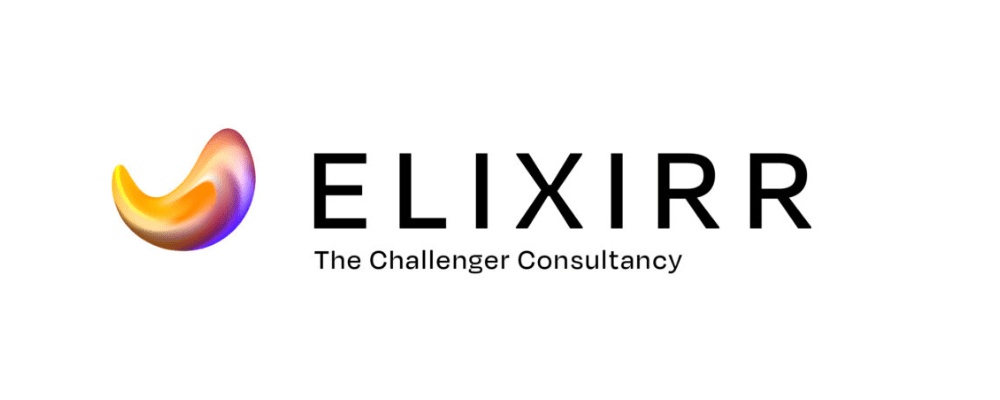The global financial services industry is facing unprecedented disruption. With an ever-expanding web of and the rapid rise of fintech competitors, financial institutions must navigate a constantly shifting landscape to stay competitive. As compliance costs grow and data management becomes more complex, bold leadership and innovative solutions are crucial. To stay competitive over the next five years, companies must prioritise clear objectives, adopt cutting-edge technology and foster a culture of compliance. Balancing risk management with innovation will define the winners in this rapidly evolving market.
Based on industry research and insights from global executives across the financial services industry, the top five disruptive forces are:
1. Increasing regulatory complexity
As new risks emerge, regulatory bodies are introducing a complex web of local, national and international regulations, each with unique compliance requirements. The pace of regulatory change has intensified, especially within data privacy, anti-money laundering and cybersecurity. Many institutions operate across multiple jurisdictions, which further complicates compliance efforts. Failure to comply risks hefty fines, reputational damage and legal consequences, making it essential for firms to stay ahead of their regulatory demands.
2. Surging compliance costs
As regulations grow more complex, institutions are under pressure to increase their spending on technology, specialised staff and processes. Compliance costs for financial institutions have skyrocketed, with some firms reporting an increase of over 60% in spending since the financial crisis. The annual cost of financial crime compliance in the Europe, Middle East and Africa (EMEA) region alone is estimated at $85 billion, with 98% of institutions reporting an increase in compliance related expenses.
3. Operational risks and data management in the AI-age
Large institutions, grown through mergers and acquisitions, often struggle with fragmented and outdated systems that hinder efficient data management and updates. Executives recognise the need to invest in better data infrastructure to leverage new technologies like AI and turn data into a strategic asset. Industry reports indicate that AI can reduce data management costs by up to 70% with modern solutions like data lakes. These improvements are crucial for meeting growing regulatory demands, especially in data privacy and cybersecurity.
4. Rising existential threats
The growing sophistication of fraud and scams poses major concern, with convincing schemes making it harder for financial institutions to protect customers. The U.S. Federal Bureau of Investigation’s Internet Crime Report says that financial losses from cybercrime hit a record $12.5 billion in 2023, driven by investment fraud and business email compromise. Beyond cyber threats, broader risk management challenges are evident, such as the recent failure of Silicon Valley Bank, highlighting how outdated systems and slow responses to changing market conditions hinder some institutions.
5. Disruptive competitors and technologies
Traditional financial services firms face growing competition from smaller, agile companies with cutting-edge technology. Acquiring these disruptors allows traditional players to integrate innovative solutions without building them from scratch. However, when an established company integrates a smaller, innovative firm, it often carries over legacy challenges, particularly with outdated infrastructure and systems. This creates complications that disruptors, who don’t have these burdens, can avoid.


For financial services executives and enterprises to survive and thrive—over the next five years, capitalising on the following critical success factors will be key:
Clarity and alignment on business objectives
As market conditions continue to shift due to technological advancements, regulatory changes and economic uncertainties, organisations must keep their goals relevant and focused. Regularly reviewing and updating objectives helps companies stay agile and responsive to trends. Companies must foster a culture where all employees understand how their work contributes to the company’s objectives. Firms that actively maintain alignment between leadership’s vision and the day-to-day tasks of employees report higher levels of engagement and better decision-making throughout the organisation.
Integrate compliance programs & foster a culture of compliance
As regulations become more complex, institutions must integrate comprehensive compliance frameworks that are deeply integrated with their overall risk management systems. Research shows that companies with well-integrated compliance and risk management frameworks are more resilient and better positioned to respond to regulatory changes, reducing the likelihood of costly violations or fines. Alongside building robust systems, fostering a culture of compliance throughout the organisation and maintaining open communication with regulatory bodies are essential for adapting to changes.
Leverage technology & enhance data management practices
RegTech solutions can automate routine compliance tasks, improving efficiency and reducing manual data collection and reporting efforts. Research indicates that AI-driven automation can reduce compliance costs by up to 50% while improving accuracy and timeliness. These technologies will also help financial institutions detect anomalies and potential compliance breaches more effectively. In addition to embracing new technologies, institutions must prioritise robust data management practices. Ensuring data accuracy and security is essential for meeting regulatory requirements and protecting against growing cyber threats.
Don’t put innovation on the back burner
A risk-based approach to compliance can help institutions allocate resources efficiently, allowing them to meet regulatory demands while still investing in transformative technologies and processes. Financial services firms can foster innovation by leveraging sandbox environments, which provide a controlled space to test new technologies and business models. Industry data suggests that companies that actively engage in controlled innovation initiatives report a 15% increase in the successful adoption of new technologies, compared to those that don’t invest in similar programs.
Bold, decisive leadership – and a culture that supports it
Leaders must make tough, long-term decisions, even if they cause short-term challenges. A lean and focused organisation is better equipped to adapt to future market shifts and challenges. Instead of being reactive, companies need to invest in being proactive and future-ready by building a strong foundation. Organisations must create a culture where every employee feels responsible for the company’s success and understands the importance of their role in achieving the collective vision. This sense of shared purpose enables the business to adapt to changes and remain competitive.
The next five years are crucial
Executives must embrace a proactive approach, integrating technology to streamline compliance, leveraging data to drive decision-making and fostering a culture of innovation and accountability. To seize the future, the speed at which strategic planning is done needs to be faster—with more frequent cycles—due to rapid changes in the market. Organisations must move the decision-making processes closer to the front end of the firm, nearer to the customer, where insights are more organic. Top-down planning is for major milestones and market ambitions, but short-term planning horizons are executed by the front end.
The future of financial services is not just about meeting today’s challenges but anticipating tomorrow’s disruptions. Success will favour the bold—the companies that not only keep pace with change but actively shape it.
“We help senior business leaders turn ideas into actions. Of course, it’s execution that determines success; that’s why we also make change happen, treating our clients’ business like our own.
Our people make our firm. And while our team expands across the globe, we continue to attract the best talent in the industry, building a team of high performing, like-minded individuals who share our vision of building the best consulting firm in the world.
With the launch of our ESPP scheme in 2021, we gave our entire team the opportunity to be part owners of Elixirr — and with a 74% enrolment rate for 2022, entrepreneurialism has never been more embedded into our business.”
Please visit the firm link to site


